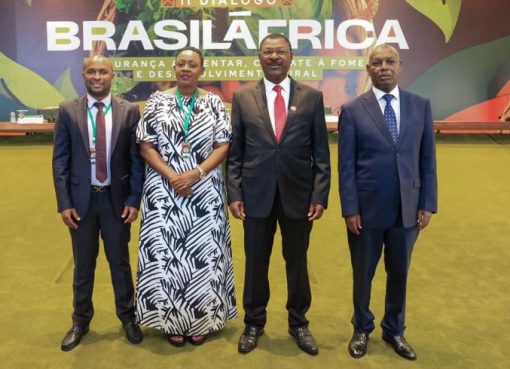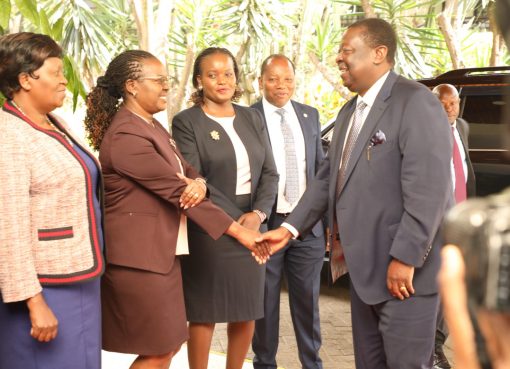Kenya will not relent on the position of maintaining a total ban on trade in ivory and other endangered species internationally.
This is the message Kenya is carrying to the forthcoming Convention of International Trade in Endangered Species of wild flora and fauna (CITES), to be held in May in Colombo, Sri Lanka.
Cabinet Secretary for Tourism and Wildlife Najib Balala said this Saturday, after participating in 2019’s Global March for Elephants, Rhinos and other Endangered Species at the Kenya Wildlife Service headquarters, Nairobi.
The ten kilometer walk which started at the Museums of Kenya and ended at the KWS headquarters was aimed at sensitizing people on the importance of protecting wildlife and other endangered species. This year’s March message was “No Market, No Trade”.
Kenya has turned around the elephant and rhino poaching crisis witnessed between 2011 and 2015 when 384 elephants were killed in 2012 as compared to 38 elephants in 2018. Four rhinos were poached in 2018 compared to 59 rhinos in 2013, Balala said.
“The western Black Rhino and the Sumatran Rhino have recently gone extinct due to poaching. The emphasis now is directed towards ensuring that international trade in the endangered species is stopped,” said the CS.
Balala applauded countries that have already closed their domestic wildlife trade markets like China, United Kingdom and the United States of America saying the remaining countries should follow suit to ensure trade of wildlife products within their borders is suppressed. The next stop is Japan who should close their markets, he said.
“Research has shown that ivory is not medicine, neither are the scales of Pangolins and this illegal trade must come to an end,” Balala said.
On the oncoming CITES conference in Sri Lanka, Balala said Kenya would be calling for total closure of all ivory markets, rejecting the proposal by Botswana, Namibia, South Africa, Zambia and Zimbabwe for unrestricted trade in ivory and the proposal by Swaziland to be allowed to trade in rhino horns harvested from its wildlife population.
Balala said it was saddening for SADCC countries to champion for the lifting of wildlife trade when elephant poaching in Africa was a menace.
“Kenya’s message is simple- it is not possible to satisfy the international demand for ivory, rhino horn and other endangered wildlife products,” the Cabinet Secretary emphasized.
Those present were Director General of Kenya Wildlife Service, Brigadier (Rtd) John Waweru, the Deputy Chairperson KWS Board of Trustees, Betty Maitoyo, diplomats and representatives of conservation NGOs among others.
By Kennedy Waziri



